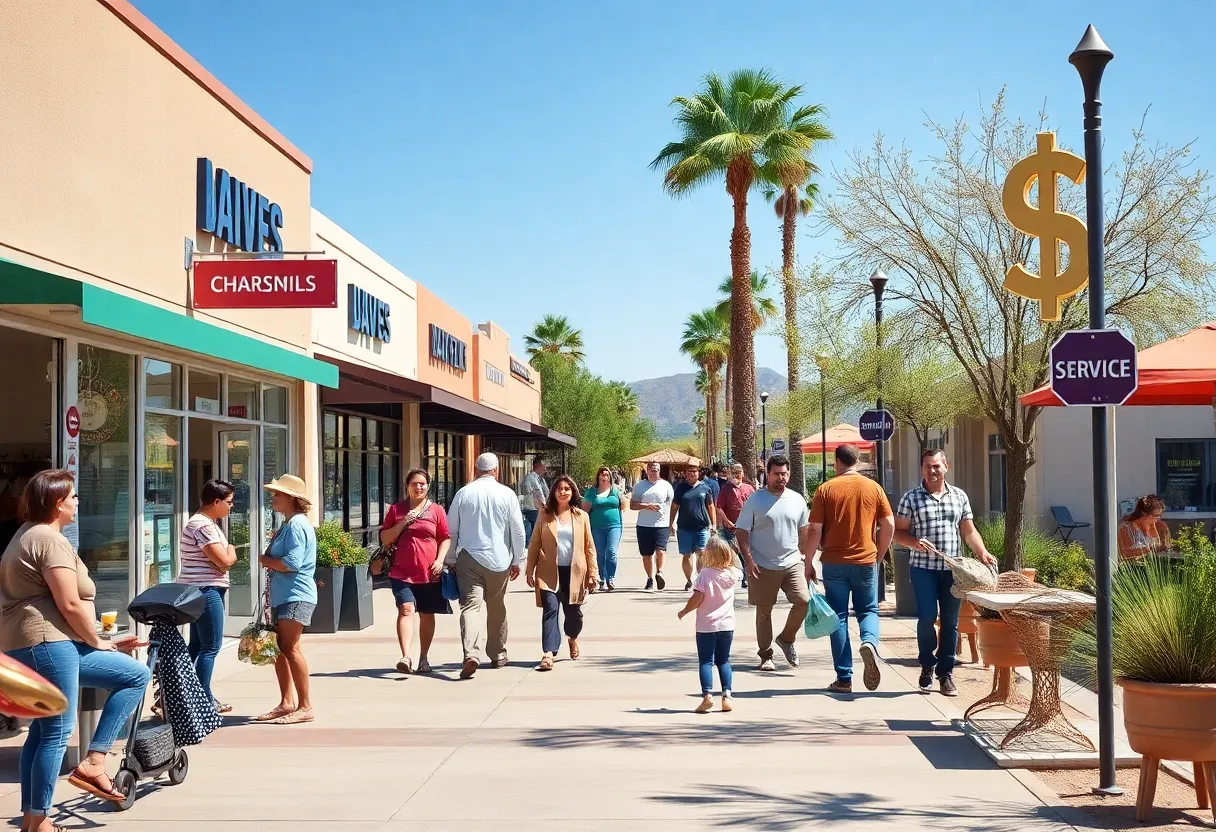News Summary
In Chandler, Arizona, local business owner Cicely Rocha-Miller fights for Earned Wage Access (EWA), a financial solution to help families living paycheck to paycheck. EWA allows employees to access their earned wages before payday, alleviating financial stress and promoting economic stability. Despite some criticisms linking EWA to predatory lending practices, proponents believe it offers a better alternative to high-interest loans. As discussions on regulation continue, Rocha-Miller urges lawmakers to improve access to EWA, enhancing quality of life for community members and supporting small businesses.
Chandler Residents Feel the Financial Pinch: Local Business Owner Fights for Earned Wage Access
Life in Chandler, Arizona can be a beautiful blend of sunshine, community spirit, and small business hustle. However, for many, the reality is far less glamorous, especially when it comes to finances. Cicely Rocha-Miller, a smart and spirited owner of Life Design Events, has been advocating passionately for a financial solution that could make a world of difference for working families: Earned Wage Access (EWA).
The Struggles of Everyday Families
Though Arizona is known for its stunning landscapes and vibrant culture, many families here are caught in a cycle of living paycheck to paycheck. Parents are often battling unexpected costs that come with raising children, making it tough to keep their heads above water. In these scenarios, EWA comes into play as a game-changer. It offers employees the chance to access their earnings before the typical payday arrives, providing a much-needed lifeline to help cover regular expenses.
The Benefits of Earned Wage Access
This flexible financial resource allows hard-working individuals to manage their bills without resorting to dainty high-interest loans or credit cards with skyrocketing fees. Imagine being able to pay off those pesky utilities or buy necessities without stressing about how to make it to the next payday! It significantly reduces financial pressure, leading to happier and healthier employees who are more focused when they clock in for work. It’s a win-win for business and family life alike!
Breaking Free from Debt Cycles
Before EWA was on the scene, many people found themselves pushing back bill payments or resorting to predatory lending practices that often trapped them in a vicious cycle of debt. EWA is emerging as a much more sensible alternative. It not only offers people the financial freedom they need but can also play a part in building economic stability in the community by providing employees with the flexibility to manage everyday costs.
Real Stories and Real Needs
One can’t help but feel a sense of compassion when hearing stories from individuals like Tenisha James, a single mother navigating financial challenges. Her experience underscores the necessity for EWA, especially in light of recent decisions to classify these services under strict loan regulations in her home state. With around a quarter of households in the U.S. living paycheck to paycheck, and over 10 million consumers accessing EWA products in 2022 alone, the demand for such financial tools is clear.
The Debates around EWA
Of course, not everyone sees EWA as a perfect solution. The topic tends to spark heated discussions among consumer advocacy groups. Some critics view EWA as a form of predatory lending, similar to payday loans, raising questions about potential accrued debt and financial liability. Yet many supporters argue that it stands as a far preferable option compared to high-interest credit products.
Local Advocacy and Business Benefits
Rocha-Miller believes that extending EWA can provide a significant competitive advantage to small businesses in Arizona. It not only helps in attracting and retaining employees but also enhances job satisfaction. That’s why she’s urging lawmakers to work together to make these valuable resources more accessible for families in her community. It’s all about improving the quality of life for everyone in need.
The Path Ahead: Regulation and Transparency
As discussions continue at state levels, certain states like Kansas, South Carolina, and Wisconsin have already made strides by recognizing EWA as a non-loan product. In contrast, Connecticut has classified it as a loan, which has effectively ended EWA services in the state. As the range of opinions pours in, one thing remains clear: discussions about future regulations are crucial to ensure financial tools such as EWA can help people without leading them into financial traps.
Conclusion: A Brighter Financial Future
With the ongoing consumer advocacy for better access to EWA, it’s evident that this is more than just a passing trend. For families juggling finances and looking for a way to avoid high-interest pitfalls, EWA stands as a beacon of hope. As Cicely Rocha-Miller champions the cause in Chandler, it serves as a reminder that when community members band together to support one another, it can spark a change that might just brighten the financial future of countless families.
Deeper Dive: News & Info About This Topic
- American Banker: Earned Wage Access
- Wikipedia: Earned Wage Access
- LexisNexis: State Legislators Debate EWA
- Google Search: Earned Wage Access
- National Law Review: CFPB on EWA
- Google Scholar: Earned Wage Access
- PYMNTS: Expanding EWA
- Encyclopedia Britannica: Earned Wage Access
- Real Clear Markets: Embracing Fintech for EWA

Author: STAFF HERE PHOENIX WRITER
The PHOENIX STAFF WRITER represents the experienced team at HEREPhoenix.com, your go-to source for actionable local news and information in Phoenix, Maricopa County, and beyond. Specializing in "news you can use," we cover essential topics like product reviews for personal and business needs, local business directories, politics, real estate trends, neighborhood insights, and state news affecting the area—with deep expertise drawn from years of dedicated reporting and strong community input, including local press releases and business updates. We deliver top reporting on high-value events such as the Waste Management Phoenix Open, Cactus League Spring Training, and Arizona State Fair. Our coverage extends to key organizations like the Greater Phoenix Chamber of Commerce and Visit Phoenix, plus leading businesses in technology and healthcare that power the local economy such as Intel and Banner Health. As part of the broader HERE network, including HERETucson.com, we provide comprehensive, credible insights into Arizona's dynamic landscape.





